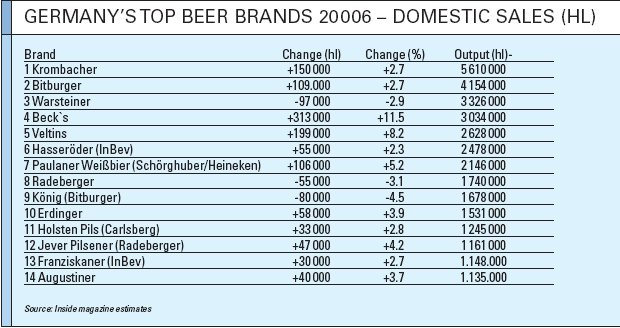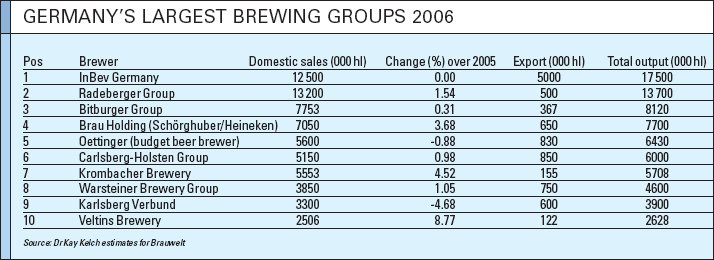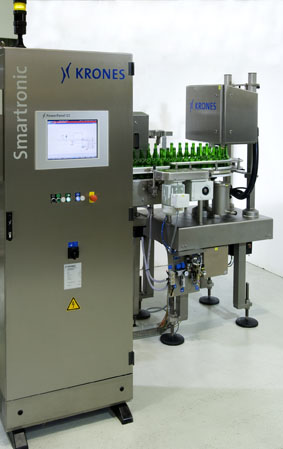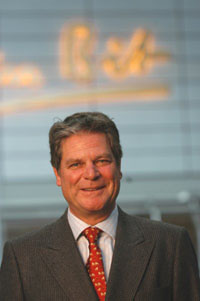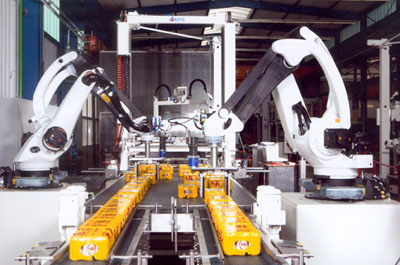According to a news release, this year’s Pianeta Birra Beverage & Co presented a completely renewed format to respond in a more incisive manner to changing market requirements. The show stood out for its 53,000 sq m of total expo space, as well as the number of exhibitors: over 450. There were eight sections on show: “Le Birre” (beer), “Le Acque” (mineral water), Espresso & Hot Drinks, “Disseta” (Fruit juices and cordials, soft drinks, energy drinks), “Gocce di Vite” (spirits and wines), “Berebio” (organic beverages), “Equipment” and “Pub Snacks”.
That is 40 000 hl more than in the previous year. Augustiner now ranks as Germany’s 14th most popular beer brand.
Until a successor will be found, Frank Steffens, off-premise Sales Director, will be interim president.
The first major international brewing convention and exhibition to be held in the UK for more than 10 years announces an exciting Programme outline and confirmed Speakers, concentrating on the wider issues of world class manufacturing and supply chain.
Since the smaller breweries and beverage producers also need a high degree of dependability in their bottling operations, Krones AG, Neutraubling, Germany, has come up with a new empty-bottle inspector designed specifically for mid-tier applications. With a machine rating of max. 18,000 containers an hour, the Smartronic K 714 is a particularly affordable inspector. It features the latest, high-resolution DART camera technology and is operated from a 15” touch-screen. Its space-saving dimensions, moreover, enable it to be easily integrated into existing lines as well.
This year Germany’s brewers face a deficit of one million tons of malt. Prices for malt have already more than doubled. An angry Bitburger brewer apparently challenged maltsters by saying: “we have other ways ….” When his threat was leaked to the press, Bitburger was forced to reaffirm its commitment to the German Reinheitsgebot.
It may just be an indication as to how fierce the battle for market share has become in Western Europe’s saturated beer markets that Heineken had taken InBev to court claiming they had violated Heineken’s patent on its home draught beer system. In January the case was settled.
In a tough market which has seen consumption decline 20 percent between 1991 and 2005, InBev has attempted to revitalise its business through the sale of breweries and the rationalisation of remaining operations. Dinkelacker-Schwabenbräu is the third brewery InBev has sold within one year.
Calculated simplicity, high flexibility, maximum future-proof investment – these are the features offered by the new KHS inline robot grouping. The particularly gentle handling of finished packaging is another. At the same time, it compensates for the ever lighter and thinner walls of the bottle and can packages or cartons and pouches used.
The European Brewery Convention (EBC) invites interested parties from the ancillary industry as well as from research institutes, universities and brewing schools to present themselves and their work during the upcoming EBC congress at Venice.

